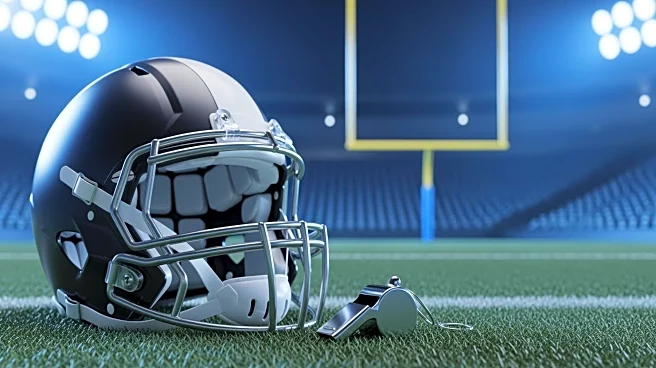Rapid Read • 8 min read
College football is increasingly adopting NFL-style management structures, with many programs appointing general managers to oversee operations. This shift is driven by changes in player compensation, including revenue sharing and more liberal name, image, and likeness rules. For the first time, players are being paid directly by schools, with revenue sharing capped at $20.5 million. The role of general managers, once niche, is now mainstream, with two-thirds of FBS teams employing someone in this capacity. These managers handle complex roster building, player contracts, and salary cap management, reflecting a professionalization of college football akin to NFL practices.
AD
The adoption of NFL-like management structures in college football signifies a major shift in how the sport operates, potentially impacting recruitment, player retention, and overall competitiveness. This change could lead to increased financial pressures on programs to maintain competitive rosters, as well as ethical concerns regarding the commercialization of college sports. Programs with significant financial resources may gain an advantage, potentially widening the gap between well-funded and less-funded schools. The move also reflects broader trends in sports management, where business acumen is increasingly valued alongside traditional coaching skills.
As college football continues to evolve, programs may further refine their management structures to align more closely with NFL models. This could involve more strategic recruitment practices, enhanced focus on player development, and increased collaboration between general managers and coaching staff. Stakeholders, including universities and athletic departments, may need to address the implications of these changes on student-athletes' academic experiences and well-being. Additionally, ongoing discussions about the balance between commercialization and the educational mission of college sports are likely to intensify.
The shift towards NFL-style management in college football raises questions about the long-term impact on the sport's culture and values. As financial considerations become more prominent, there may be increased scrutiny on how these changes affect the traditional amateur status of college athletes. The evolving landscape could also influence public perceptions of college sports, potentially altering fan engagement and support. Furthermore, the integration of business practices into college athletics may prompt legal and regulatory challenges, particularly concerning player rights and compensation.
AD
More Stories You Might Enjoy











